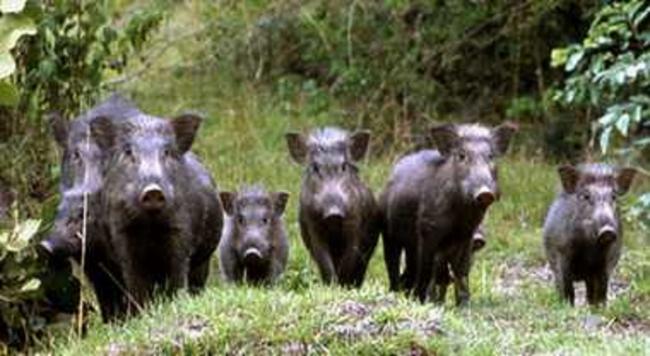Technological use and new innovative practices for the useful and sustainable management, control and economic valorization of wild boar (Sus Scrofa) in Campania Region

Exploiting the agricultural/forest/pastoral territories for wild animals developing and controlling measures: 1) limiting the presence of wild boars in Campania Region; 2) Pilot initiative for spreading the "boar issue" on the Internet, therefore changing the boar in a resource; 3) activating the "S.U.S. Campania" short supply chain. General control plan as to wild boars' demographic explosion phenomena, ensuring a timely development to the local economies. Three project phases: I. study of agro-food productions-related issues; II. deployment of contaning protocols for wild boars, and activation of the supply chain; III. verification and spreading of the main results.
S.U.S. Campania is articulated in 7 Work Packages (WPs), each one divided in turn in tasks. The tasks will be realized by deploying the competencies of the GO's technical-scientific team members. In particular, the 11 Scientific Disciplinar Sectors involved will guarantee the accomplishment of the 3 main POI's targets (population containment; pilot initiative; short supply chain) as well as of the 3 main priority goals (safeguarding natural and agricultural ecosystems; restoring conditions of natural equilibrium; promoting Campania Region resources). Three main phases are foreseen, each lasting 12 months, during which the mentioned goals indicated in both the WPs and the tasks will be addressed
"S.U.S. Campania" is having place whitin the Province of Avellino, in particular in the Municipality of Quindici that is part of the Rural Territorial System #18 - Mount Partenio - Mounts of Avella - Alvano's Peak (STR18). Such a highly diversified territory features both montain and hill landscapes that host the typical ecosystems of the Appennines of Campania Region (beechwoods, peak meadows, top karstic plateaux, broadleaved woods, xerophile meadows) and a 16.955 ha wooden area. The agricultural activities that characterize the foothill sides, mostly feature specialized hazelnut trees as well as fruit chestnuts. The remaining zones, other than the arable ones, host industrial coltures, vineyards, and arboretums. There is scarcity of pasture areas. The urban presence has raised, in the last 50 years, from 2% up to 6%. Such territory is interested by wild boars-related issues. The presence of wild boars is meaningfully increasing in agricultural/forest/pastoral territories all along Italy. Nontheless, according to the National Ungulate Database (ISPRA, 2009) a grave lack of information still exists at national level as to the volume of the population of wild boars. According to a very approximated estimation, about 600.000 wild boars are actually living all along the national territory.
The "S.U.S. Campania" project addresses the requests of the requests from the Operational Projects for Innovation (POI) structure. The three partners involved (farm, DMVPA, DAFNE) intend to develop a sort of Process Innovation based on the realization of a short supply chain capable to turn the "wild boar issue" in Campania Region (see 2016-2018 Special Plan for wild boars Emergency in Campania Region) into an opportunity (food, economic and cultural resource) for the farm/forest/pastoral regional compound. The development of the proposed farming model aims at performing processes towards innovative goals, easily applicable on a timely time period.
The Tasks proposed in the different Work Packages will be realized thanks to the multidimensional competences of the members of the technical-scientific team from the Universities involved in the OG. In particular, the 11 Scientific Disciplinar Sectors involved in the project will guarantee the accomplishment of the 3 main POI's targets (population containment; pilot initiative; short supply chain) as well as of the 3 main priority goals (safeguarding natural and agricultural ecosystems; restoring conditions of natural equilibrium; promoting Campania Region resources). Three main phases are foreseen, each lasting 12 months, during which the mentioned goals indicated in both the WPs and the tasks will be addressed.
Vedi le singole descrizioni dei Work Packages per il dettaglio degli specifici obiettivi e Task.